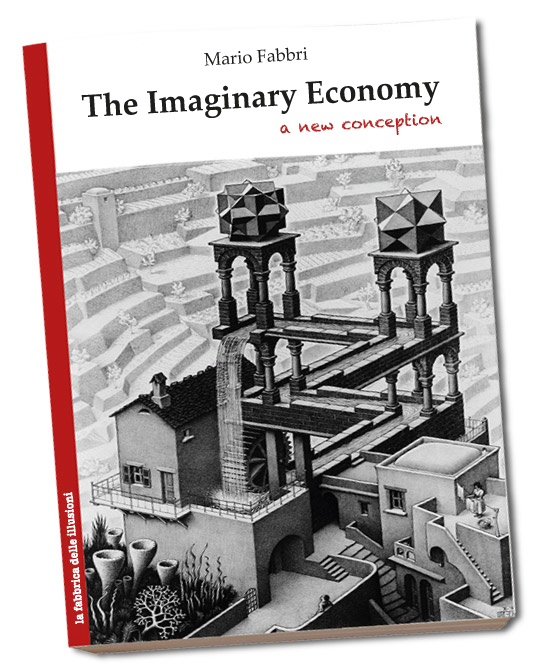Why read The imaginary economy?
In the last 200 years the spectacular progress of technology has radically changed how the economy works in the most developed countries. But ordinary people, and experts too, have failed to come to grips with this new situation and tend to abide by traditional ideas and behaviour, formed in times of scarcity when work was a hard daily grind. Now The Imaginary Economy provides a clear new conception of how today's advanced economies work and the reason for the unstoppable growth of the service sector. To see if the book deserves your attention, please check out the four extracts on this page:
- A very brief presentation of the book
- The first pages of the book explaining two important economic developments which, so far, economists have been unable to decipher
- The presentation of a fundamental psychological factor, ignored by economists but enlightening for the understanding of economic developments.
- A short tale that shows how the "imaginary economy” originates

About the Author
Mario Fabbri, a scholar of human sciences, was born in Novara in 1949.
After graduating in electronic engineering from Turin Polytechnic and getting an MBA at INSEAD in Fontainebleau,
in 1975 he joined the confectionery group FERRERO where he held various positions, latterly organising an in-house
division providing IT services to Group companies worldwide .
In 1995, with two partners in Turin, he founded Directa SIMpA (www.directa.com),
world pioneer of online trading in the financial markets and still sector leader in Italy. He is Directa’s Vice-president.
He has published in Italian: in 2013 La fabbrica delle illusioni [Factory of delusions], about the severe faults of current economic theories,
and in 2015 La rovina delle nazioni [The downfall of nations], about the collapse of some ancient civilisations and the less serious but
somewhat similar 17th century economic downturn of Southern Europe.
Media
“...even if not wholly true, it is undoubtedly partly true.
Moreover, as efficiency gains in production continue,
it will become more true in the future…"
Rory Sutherland
Spectator Magazine
21 July 2018
“I can recommend Mario Fabbri’s The Imaginary Economy as poolside reading...[its] theories are so depressingly plausible that you probably won’t return to work.”
Rory Sutherland
Spectator Magazine
7 July 2018
"Why Economists Don’t Know the Economy
and How to Profit From Understanding It”
Ceoworld Magazine
9 July 2018
"A pioneering Italian businessman reveals hidden truths about the framework of modern economics..
it is a must-read to understand the economy, both past and future.”
Self-Publishing Review
19 August 2018
"Standing out as a revolutionary idea while also an effective means of getting his point across, the story at the end of the book,
Story of Ytali Land, does a surprisingly capable job of explaining the core idea of the entire text in just a few, short, entertaining pages.”
Michael Radon
The US Review of Books
August 2018

